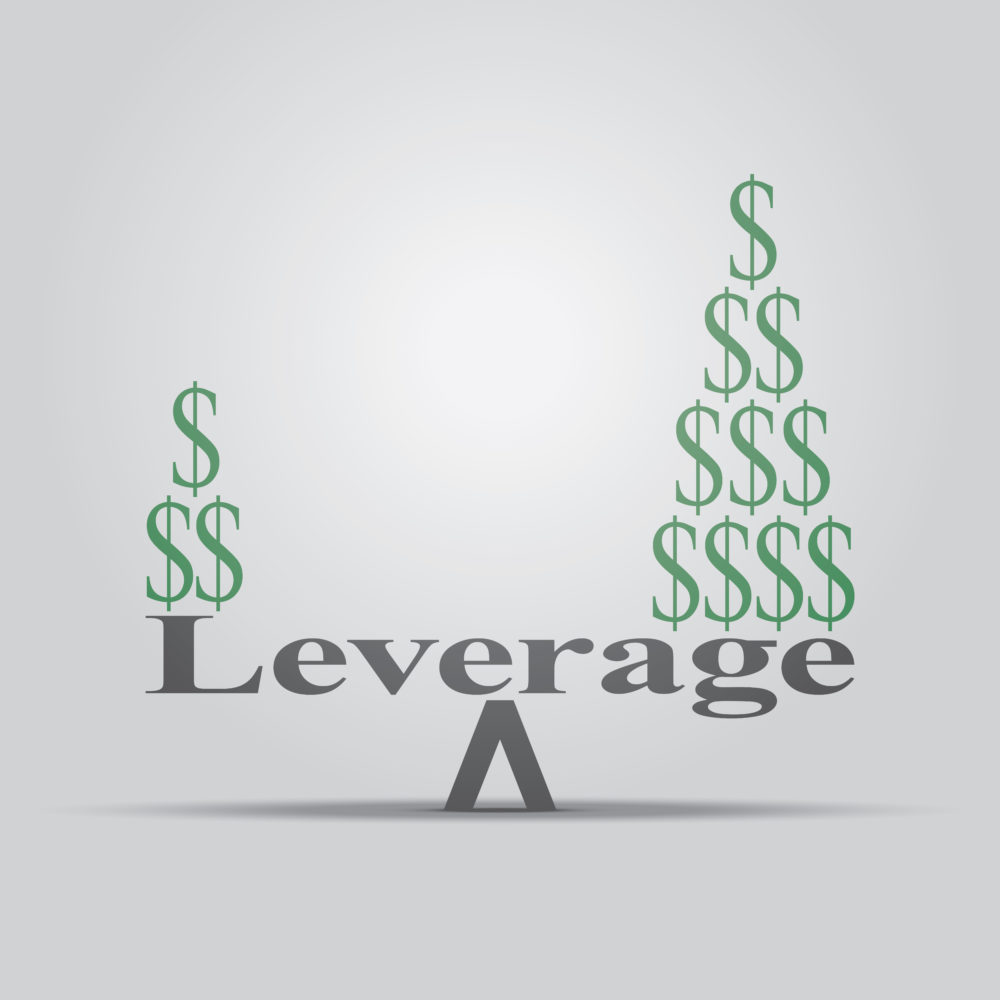Table of Contents
Is Whole Life Insurance a Good Investment?
The following article tackles the question of whether or not whole life insurance is a good investment. You will find our answer to be contrarian to much of the mainstream thought regarding the purpose of whole life insurance and its utility. Whole life is a specialized product that is a great fit for some, but not for all. We will do our best to help you figure out which side you fall on.
Whole Life Insurance as an Investment
At Insurance & Estates, we help you make sound estate planning AND wealth building decisions, and sometimes this involves taking a closer look at the little known money secrets of the wealthy. After all, isn’t it wise to model our financial habits after those who’ve demonstrated an acumen for building wealth?
Freedom. Security. Opportunity. Control.
What if I told you there is a way to take your hard earned money, AND put it in an asset that offers a guaranteed return regardless of market conditions, with tax free gains AND is “asset protected” in many states? Does this sound like something a wealthy person might do?
In this article which asks the question, “is life insurance a good investment”, I’m going to demonstrate the WHY and HOW the wealthy accomplish all of the above (Freedom, Security, Opportunity, & Control) through the purchase of a specifically designed high cash value whole life insurance in 5 simple lessons.
Why Whole Life Insurance is a Good Investment
First off, the financial sector has the monopoly on what can be considered an “investment”. Dividend Paying Whole life insurance does not fit the criteria for an investment. That is a good thing because investing involves risk and whole life insurance is a no risk asset because returns are guaranteed.
Whole Life insurance policies are not investments and should not be purchased as an investment.
So, whole life insurance is not an investment in the same way riskier assets like stocks, bonds, and mutual funds are investments. Rather, cash value whole life insurance is an asset that acts as a savings vehicle with liquidity, i.e. cash surrender value, that can be utilized through withdrawals or via loans from the insurance company.
A properly designed whole life policy, used in conjunction with some specific wealth building principles, will increase your net worth substantially over the long term. So, in that sense, whole life insurance is a good investment.
But before we tackle this important topic in detail, we need to take a moment to explain how whole life insurance works.
How Whole Life Insurance Works in 2025
Whole life insurance defined: A whole life insurance policy is a type of permanent life insurance where a contract is entered into between the policy owner and insurer, for a policy, which covers the life of the insured, for a specified insurance coverage amount, which pays a death benefit to a beneficiary. Whole life also offers living benefits, such as guaranteed cash value growth in a tax deferred account that can be used via withdrawals and loans.
Whole life insurance policies offer several different insurance riders that can be used to enhance the early high cash value growth of the policy. A properly designed whole life policy can be tailored for high cash value growth or for high death benefit, depending on your goals and objectives.
In 2025, with rising interest rates impacting the appeal of whole life policies, many insurers have adjusted their offerings with longer premium payment periods to reduce annual costs[1]. This shift has created new opportunities for policyholders to customize their coverage to better align with their financial goals.
Whole life is often juxtaposed against term life insurance. However, the entire whole life vs term life argument is moot when you understand that you can actually design a whole life policy with a term insurance rider, allowing you to get both whole and term life insurance in ONE policy, instead of either/or, but with the long term benefits of a true compound interest account that maximizes cash value accumulation and growth.
Whole Life Makes a Good Investment
Properly structured whole life insurance is a good investment in your financial future for many reasons. If it is properly funded as part of a strategy known as the infinite banking concept®, whole life insurance becomes an extraordinary financial vehicle to create wealth.
Now, please note that this is not some secret strategy or special product that only wealthy people can get. Actually, this strategy of using whole life insurance cash value is available for everyone that can pass a life insurance medical exam and background check.
However, the problem is, most people are completely unaware of utilizing whole life in this way. Which is why we often hear the question,
“Why have I never heard of this?”
So, if you came here thinking you were going to find the typical canned answer to your question about whole life insurance being a good or bad investment, think again. If you stick with us, we will take you on a journey that will hopefully open your mind to new financial potentialities.
THE ULTIMATE FREE DOWNLOAD
The Self Banking Blueprint
A Modern Approach To The Infinite Banking Concept

5 Money Secrets of the Wealthy
Secret 1: The Wealthy Buy Assets
Wealth coach, educator and entrepreneur, Robert Kiyosaki, author of Rich Dad, Poor Dad, puts it best when he says that the wealthy buy assets while the poor and middle class buy liabilities.
Kiyosaki’s point isn’t hard to understand if you look at the fact that most people’s most valuable financial investment (and I use the term loosely) is the family home. He makes the point that, because your home doesn’t create any cash flow and yet costs you money in terms of expenses, therefore your home is not an asset.
Kiyosaki simplistically (yet brilliantly) defines assets as anything that puts money into your pocket and liabilities as anything that takes money out of your pocket.
Your Home
You may believe that your home is an asset because it offers a tax deduction for mortgage interest AND may appreciate in value. However, consider that your home takes money out of your pocket, it is subject to foreclosure if you don’t pay your mortgage or property taxes, many states homestead exemption laws don’t protect your home from creditors, and your equity is essentially “dead” money earning zero a rate of return that is trapped in your home and not liquid and easily accessible.
But… if you consider what could be accomplished by converting your home into an investment property, leading to financial benefits such as writing off depreciation and expenses and gaining cash flow passive income, you may start seeing what an asset looks like.
In contrast, liabilities like the home you live in, vehicles, boats, and other toys only take money out of your pocket.
Whole Life Insurance vs Real Estate
If we consider whole life insurance and compare it to the benefits of real estate, we find that whole life mirrors most of the advantages of real estate assets.
Whole life offers (1) cash value which is liquid, creating cash flow, (2) income tax advantages, (3) the ability to borrow against it as collateral through a life insurance policy loan and (4) the cash value grows exponentially due to true compound interest.
Perhaps you’ve heard some talking heads rail against life insurance as a terrible place to put money… (Dave Ramsey comes to mind).
To show you the money secrets of the wealthy, I only need to refer you to the balance sheets of major banks and corporations. Check out a major banks balance sheet section of the major US banks titled “life insurance assets”.
Major banks are financial powerhouses, ran by those in the know, with virtually unlimited capital and unlimited access to key financial insight, and the banks have determined that
owning whole life insurance is a good investment for banks – even superior to real estate.
Of course, the wealthy aren’t buying from just any insurance company. Banks select top rated companies, such as established mutual insurance companies that have a track record of success for 150 to over 200 years.
The best life insurance companies typically have ratings like A+ Strong (Standard & Poor’s), A+ Superior (A.M. Best) and Aa3 Excellent (Moody’s). Numerous factors are taken into account in generating these ratings such as operating performance, capitalization, strength of risk profile, etc.
Secret 2: The Wealthy Do NOT Gamble With Money
The wealthy DO NOT throw money into a stock on a whim and a prayer hoping that it will take off like many inexperienced investors today.
In his book, Money, Master the Game, Tony Robbins suggests that it is impossible in today’s climate of micro trading for a small investor to out think the professionals in the stock market. He suggests a broad mix of investments as a hedging strategy against market uncertainty.
Which brings us to our second reason why whole life insurance is a good investment in your financial well being—it is not connected to the stock market.
Whole life insurance is a non correlated asset, which is a fancy way of saying it does not follow the ebbs and flows of the stock market.
Rather, whole life has built in policy guaranteed returns. In addition, the opportunity to earn life insurance dividends is a huge benefit.
2025 Market Perspective: Stability in Uncertain Times
With market volatility remaining high in 2025, dividend-paying whole life insurance has seen renewed interest from investors seeking stability. Northwestern Mutual announced its largest-ever dividend payout in company history for policyowners[2], further demonstrating the resilience of mutual insurance companies even during economic uncertainty.
Whole Life Insurance vs the Stock Market
When wealthy individuals invest in the stock market, they do it after extensive research and thorough knowledge of the investment, or of the investment advisor (Bernie Madoff excluded). They typically don’t invest in mutual funds. They also do not invest their safe bucket in investments where they stand to potentially lose their emergency money.
In the real estate arena the wealthy know that you make money in real estate when you buy and hold (i.e. not sell) and that it is critical to do your research and ONLY buy when the right opportunity arises. A seasoned investor may look at 100 properties before making an offer on one.
The wealthy also DO NOT spend from their safe investments to purchase speculative or high risk investments. On the other hand, they may use other assets on their balance sheet as collateral for obtaining funding for other opportune investments.
The message here is that you need to:
Create a safe money asset foundation to provide stability to capitalize on higher risk, higher return investments when they arise.
This is particularly important during times of economic crises because the greatest opportunities arise during these times. And whole life insurance is a perfect place to establish a solid rate of return, tax advantages, death benefit and asset protection under many states’ laws.
Money Secrets of the Wealthy
What the Wealthy Teach Their Kids
Secret 3: The Wealthy Avoid Paying High Interest Rates AND Minimize Taxes
The wealthy DO NOT pay interest on credit card balances at 20% interest rates OR finance other purchases at high rates. Simply put, these bad debt rates are a SCAM against the poor and middle class and a major reason financial entertainers like Dave Ramsey and Suze Orman have a platform.
That the wealthy don’t have a lot of bad debt probably doesn’t surprise you, but would it surprise you to learn that the wealthy often do use financing to get into a lot of good debt?
Think about it from a logical standpoint… when the wealthy buy assets, they need ready reserves of cash or financing to do so. Even when they buy liabilities, they may use financing but choose to do so at highly favorable rates.
This is where building a base of available cash at highly favorable rates (i.e. infinite banking using whole life insurance) is a key strategy of the rich for building wealth.
This being your own banker strategy can be utilized for both buying assets as well as liabilities without needing to remove your cash from your safe bucket (i.e. whole life policy) that is continually working AND compounding to generate a consistent rate of return.
To repeat, with a whole life policy you have ready and available liquid cash, that can be borrowed against tax free, in a private transaction, regardless of your credit score, to purchase other cash flow producing assets, all the while your money in your policy is still earning interest and dividends. Your money is working in two places at once!
The Wealthy Avoid Taxes
Now let’s expand on this thought and introduce the idea that the wealthy do their best to avoid ordinary income and the high taxes associated.
You see, the wealthy focus on limiting their ordinary income and creating tax advantaged passive income, which is taxed at a much lower rate than ordinary income.
Kiyosaki talks about his tax strategies in detail concerning business ownership and real estate.
Contrasting this with investing in whole life insurance and we have another powerful example of strategizing using the tax code via the ability to grow your cash value through tax free dividends in a whole life insurance policy from a mutual insurance company.
If you’re skeptical about tax free dividends, you shouldn’t be… top mutual insurance companies have been paying these dividends for 150+ years through all manner of financial crisis. Because the companies are mutual companies, which are owned by the policy holders (in contrast to stock companies), the profits are returned to the policy holders as return of premium in the form of dividends. There is no gimmick or tax loop hole here. This is simply sound business practices in action to reward the policy holders for placing confidence in a mutual company.
The poor and middle class, on the other hand, invest heavily in 401(k) plans and IRAs. You should ask yourself whether the push to invest in this way is based upon sound business advice, and a concern for your welfare OR the relentless desire of the financial community to get your money, keep it for long periods of time, and offer little in return.
I suggest that the modern 401(k) plan is a scam facilitated by those who financially prey upon the poor and middle class to divest you of your wealth in much the same way as the idea to deduct income taxes from your paycheck.
Creditor Protection
In addition to the above benefits, life insurance creditor protection should definitely be considered if you live in a state that has favorable tax laws.
Some states allow cash value life insurance to be exempt from creditor claims and from bankruptcy. That way, you can build up your cash value and know that creditors will not be able to touch it.
And your death benefit paid to your beneficiary will often be exempt from creditors also.
Secret 4: The Wealthy Use Leverage to Double and Triple Profits
If a wealthy person can use money that is already making money to make more money, will they do it?
The simple truth is that the wealthy put their safe bucket assets to work for them in investments such as whole life insurance, high grade bonds and treasury bills.
Safe Bucket
The wealthy use whole life insurance policies as their savings accounts, i.e. safe buckets.
With the safe bucket covered and generating passive, tax advantaged income, they then have the freedom to entertain opportunities such as real estate, business start ups, private lending and other lucrative opportunities by borrowing money at favorable rates, often from the mutual insurance companies general account using their policy cash value as collateral, or shopping the rate to other financial institutions to see who is most competitive.
I again submit that the most favorable, easiest and most flexible way to borrow money is from the cash value on a whole life insurance policy.
Who Benefits Most from Whole Life as an Investment?
Recent market analysis indicates that whole life insurance may be more suitable for certain segments of investors[3]:
- High-net-worth individuals seeking tax-advantaged wealth transfer
- Business owners using policies for key-person protection and executive benefits
- Those who have maxed out other tax-advantaged retirement accounts
- Individuals with complex estate planning needs
- Those prioritizing financial security and guaranteed returns over maximum growth potential
In the real world, it is easily attainable to get positive arbitrage on borrowed funds using whole life insurance. This means one can borrow money from their policy and still earn a solid, risk free return in the policy, then investing the borrowed funds in an investment, so that the total return is multiplied.
This is an introduction to the concept of leverage. Real estate investors use leverage all the time. The advantage to using whole life insurance this way is that it is guaranteed return and thus, will not suddenly lose 20% of its value, as can occur in the real estate market. Many a real estate investor has imploded by being leveraged too thin… and this really isn’t a concern when your loan is backed by life insurance instead.
You see, the loan you take out on your cash value does not have a repayment schedule. In fact, you don’t have to pay your loan back, EVER. Although we would caution against this strategy if your goal is to build your cash value and death benefit over the long term, it is a nice feature of whole life insurance as an investment.
Secret 5: The Wealthy Protect Their Families and Loved Ones
Wealthy families first seek to protect their legacy through education, and I’m not talking about that expensive Ivy League education… I believe that may be more of a middle class philosophy. Rather, I’m talking about giving the kids a solid financial education about money via life insurance for children using infinite banking.
Robert Kiyosaki would contend that this kind of financial education, obtained from his Rich Dad, made all the difference for him. Scrolling back to the top of this article, it all goes to the definition of assets and liabilities and the fact that the wealthy teach their kids to focus on buying and creating assets and avoiding overspending on liabilities.
The wealthy prioritize financial education to assure that the kids will be equipped to preserve and protect the family wealth. As we’ve discussed, even large estates face peril where a family business is concerned and the primary business owner passes away.
Enter the need for life insurance for family business succession planning AND key man insurance to assure that strong liquidity is preserved to cover estate taxes, income taxes and the other costs of settling the estate so that a business may continue to operate uninterrupted.
The death benefit in a life insurance investment is the icing on the cake when you look at this powerful financial tool holistically.
A properly designed whole life insurance policy will allow the death benefit to grow concurrently with the cash value, so that protection of the family business AND estate is always maintained.
In addition, living benefits such as a long-term care rider or chronic illness rider can help provide needed cash in the event of a chronic illness, requiring long-term care services. The influx of cash can protect other less liquid assets from being untimely liquidated.
These living benefits can keep your legacy from falling apart after you worked a lifetime to build it. This falling apart is not unrealistic… just look at what happened to the Miami Dolphins when the primary owners passed. As much as various products are touted by the pundits, there is simply no other investment like whole life insurance that provides this kind of protection.
Discover if Whole Life Insurance is Right for Your Business
Discover if Whole Life Insurance is the Right Investment Strategy for You
Before making any decision about whole life insurance as an investment vehicle, get a personalized analysis from our independent advisory team. We’ll help you understand if this strategy truly aligns with your financial goals and wealth-building objectives.
- ✓ Receive a detailed breakdown of how a properly structured whole life policy would work in your specific situation
- ✓ Compare whole life insurance to other investment strategies based on your unique goals
- ✓ Understand the potential tax advantages and compound growth benefits
- ✓ Get a clear explanation of how to use policy loans for leverage and wealth creation
Schedule your complimentary 30-minute Wealth Strategy Session today and take the first step toward financial freedom using the strategies of the wealthy.
No obligation. No sales pressure. Just expert guidance to help you determine if whole life insurance is the right wealth-building tool for your long-term financial strategy.








2 comments
Michele Mancinelli
How do you compare whole life versus universal life insurance. Which one is better and why?
Insurance&Estates
Hello Michele, we have a couple of articles on our blog about this topic in detail.
https://www.insuranceandestates.com/iul-vs-whole-life/
https://www.insuranceandestates.com/whole-life-vs-universal-life/
Start there and when you’re ready, I also encourage you to connect with Barry Brooksby at barry@insuranceandestates.com for a more detailed look at options.
Best, Steve Gibbs for I&E